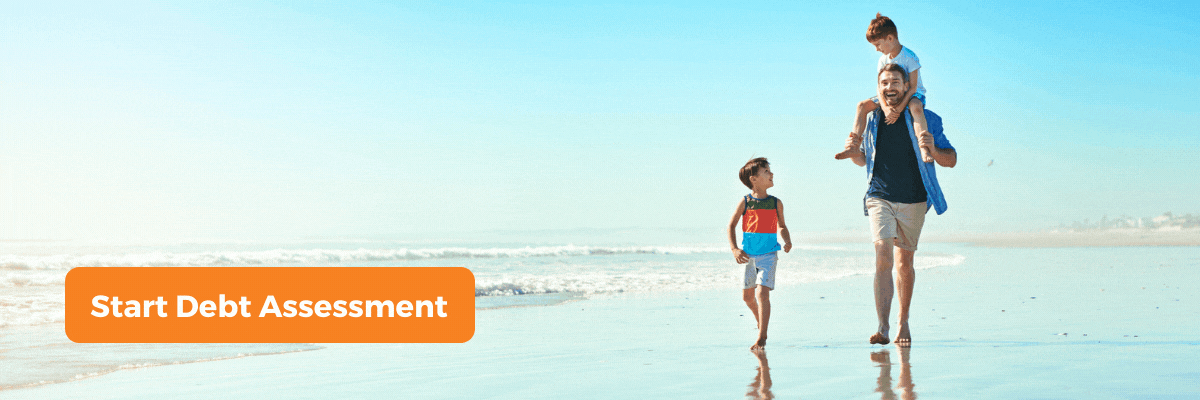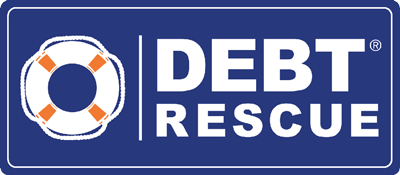When it comes to a Debt Agreement vs Bankruptcy, which debt relief solution is best?
When people fall into bad debt, they can turn to a number of debt relief solutions to help them out of trouble. Often it comes down to two options: a Debt Agreement vs Bankruptcy. If you have been struggling with your debt of late, you may have heard of a Debt Agreement. A Part 9 Debt Agreement is a legally binding agreement between you and your creditors which outlines a new, affordable repayment arrangement. It pauses your fees and interest and allows you to repay only a percentage of each dollar you owe to satisfy your debts.
Whether a Debt Agreement of Bankruptcy is the better solution comes down entirely to your unique situation. While it might be more beneficial for some people to declare bankruptcy, it has a number of restrictions and long-term consequences which make it a very difficult option for others to pursue. For example, if you own a home, you might prefer to enter a Debt Agreement to keep your house. But if your debts are beyond control and you have lost a steady source of income, Bankruptcy would be better.
To help you make an informed decision about which debt relief solution is right for you we have touched on some of the important differences between the two. This is Part 9 Debt Agreement vs Bankruptcy in the ultimate battle of debt relief solutions:
Amount of Debt
Part 9 Debt Agreement - Only unsecured debts may be included in a Debt Agreement. The combined value of these debts cannot exceed the threshold amount set by the Australian Financial Security Authority.You can check the threshold amount here- it is updated twice annually.
Bankruptcy - There is no restriction on the amount of debt you owe to declare bankruptcy. You could owe $2000 or $200,000. This is because the act of declaring bankruptcy is officially declaring to your creditors that you don't have any money or value in assets to cover the debt you owe. So a Trustee will sell your assets and cap your wages for the period of Bankruptcy to repay your creditors what you owe. However, if you have less than $10,000 in unsecured debts, we recommend you keep bankruptcy as a last resort
Earning Capacity
Part 9 Debt Agreement - There are no restrictions on how much money you can earn. However, you need to be earning enough to cover your Debt Agreement repayments. Often this means people who have no income cannot enter into a Debt Agreement.
Bankruptcy - During the bankruptcy, you cannot earn over the threshold amount set by AFSA. Any money earned over this amount will be confiscated by your trustee and distributed to your creditors.
Operating a Business
 Part 9 Debt Agreement - You may be able to operate a business while you are in a Debt Agreement. In someindustries,you will still need to disclose your state of insolvency.
Part 9 Debt Agreement - You may be able to operate a business while you are in a Debt Agreement. In someindustries,you will still need to disclose your state of insolvency.
Bankruptcy - There are several restrictions on operating a business when bankrupt. These depend on which industry you are in. While bankrupt, you cannot be a director of a company or be involved in its management. You may be able to operate a business while bankrupt. However, in some professions, you must disclose you declared bankruptcy.
Owning Property
Part 9 Debt Agreement - You may own property while you are in a Part 9 Debt Agreement.However,if you are planning to purchase a new property while you are in a Debt Agreement, you may find it difficult to secure finance.
Bankruptcy - You can not own property while you are bankrupt. Any property or share in a property you own will be sold by your trustee. The proceeds from the sale will go to your creditors.
Owning a Car
Part 9 Debt Agreement - There are no restrictions on the number or value of vehicles you can own during a Debt Agreement. Secured loans cannot be included in a Debt Agreement. If you have purchased your car with a secured car loan, you will need to maintain the minimum repayments on that loan separately to your Debt Agreement repayments.
Bankruptcy - There is a set threshold on the value of the car you drive. If your vehicle exceeds this amount it will be sold by your trustee. It might also be repossessed if it was secured against a loan.
Your Credit File

Part 9 Debt Agreement - A Debt Agreement is usually negotiated over a 5 year period. You can pay it off sooner without consequence. In certain circumstances, a Debt Agreement may also be renegotiated part way through if your situation changes. This will essentially extend the life of your agreement.
When you enter a Part 9 Debt Agreement your name will be listed on the National Personal Insolvency Index while you are in the agreement only.
Bankruptcy -You are bankrupt for three years. This term can be extended to 5-7 years by your creditors or trustee under certain circumstances. Once your bankruptcy is over, it will remain on your credit file as a 'discharged bankrupt' for a further 2 years. While your Bankruptcy is officially over after 3 years (if not extended) you will find it difficult to borrow money in the following 2 years as it will still be marked on your credit file.
When you declare Bankruptcy, your name will be listed on the National Personal Insolvency Index for life.
Which is Best for You?
In the debate of Debt Agreement vs Bankruptcy, a Debt Agreement is a less intrusive method of repaying your debts. While it still requires you to make debt repayments, they are made affordable and your financial future will recover quickly once it has ended. Bankruptcy has many long-term, restrictive consequences which are hard to escape years after the bankruptcy has finished. However, both debt relief solutions have their place in Australia and are tried and proven methods of helping you rid yourself of bad debt.
If you aren't sure which is the best debt relief method for you, call Debt Rescue for an obligation free chat. Our Case Manager will take the time to get to know you and your debt situation before recommending a personalised solution to your debt. You can call us at 1800 003 328
For more information on Debt Agreements, check out our Debt Agreement page here.
-137x60px.png)




